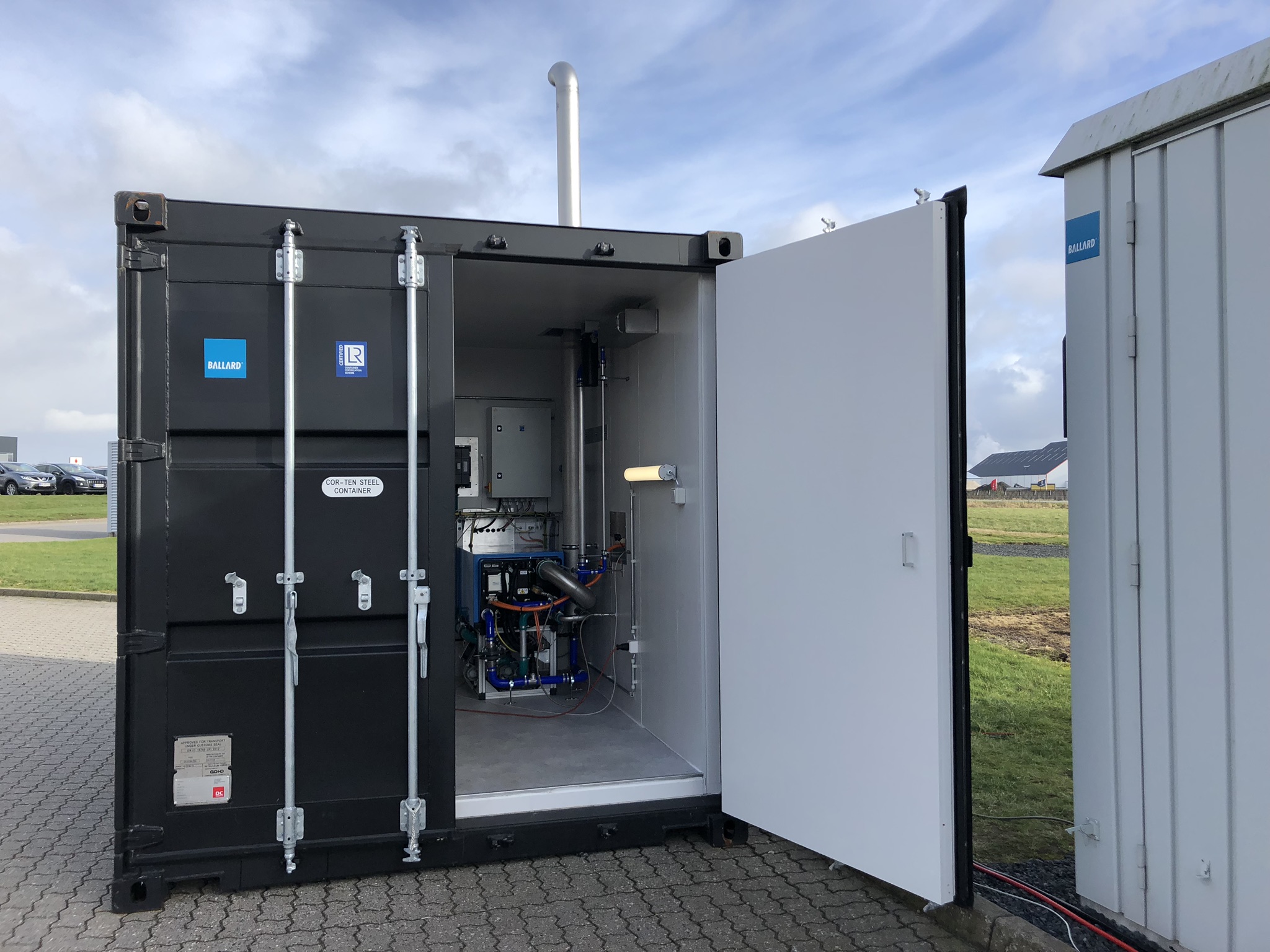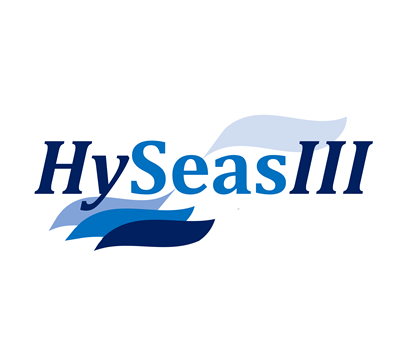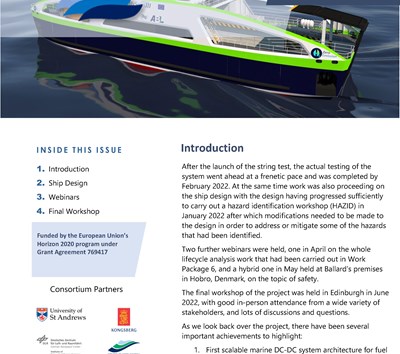Work package 2 of the project involves a series of tests on the drive train, starting from a simplified and scaled down version, to a full scale test to demonstrate functionality and durability. We are pleased to report that 1 Ballard MD30 containerised fuel cell module was shipped from Denmark to Kongsberg's test lab where it will be combined with a hydrogen supply and battery and then connected to the Kongsberg Energy Lab which will simulate a range of dynamic loads.
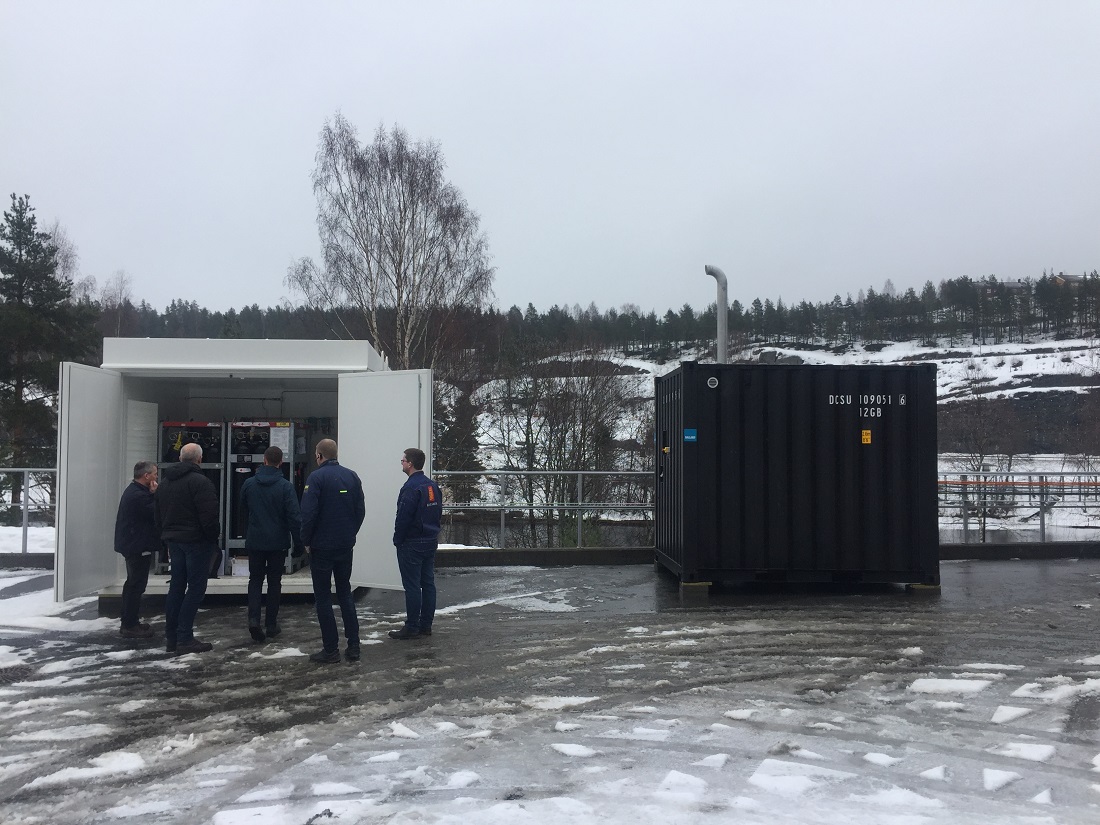
As you can see, the weather in Norway was somewhat different.
Engineers from Kongsberg and Ballard worked together to commission the fuel cells and Kongsberg are now able to start and control the fuel cell centrally from the control laboratory, as well as to add load.
In the current setup, energy from the fuel cell goes through the DCP converter, DC bus, thruster drive and then feeds the local grid. Linked to the DC bus are two battery packages that can be controlled through the energy management system which enables tests to be performed to understand dynamics, behaviour, energy management and the control system including a combination of fuel cell and battery.
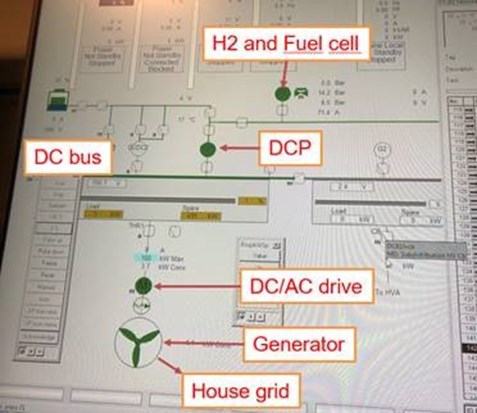
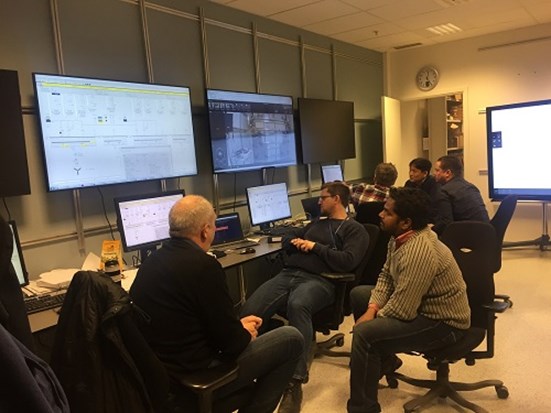
The Ballard MD-30 fuel cell has a rated net power of 30kW in dimensions (l x w x h) of 900 x 480 x 375 mm weighing 125 kg. Full specs are here. The fuel cells that will be used in the full scale drive train are the HD100 with a 100 kW rated net power, with dimensions of 1200 x 869 x 506, weighing 285 kg. Full specifications are here.
The fuel cells have previously been tested by a consortium in Japan (Yanmar, NMRI, JSTRA, supported by MLIT) in 2018 on a 16.5 m boat powered by 2 MD-30 fuel cells and a 60kWh lithium ion battery.
